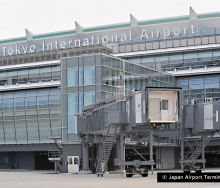Pressure is mounting on airlines worldwide to clamp down on passengers who fly with overweight or non-compliant carry-on luggage so that these airlines can more closely and safely manage their cargo.
At the beginning of December last year, Acsa said it would address the issue of passengers flying with hand luggage that doesn’t meet necessary requirements at all Acsa-controlled airports, regardless of whether they were flying domestically, regionally or internationally.
Although each airline has its own set of restrictions on carry-on luggage, many are now enforcing weigh-ins of carry-on luggage, and luggage exceeding these restrictions has to be checked in.
While the resulting lengthier baggage check-in processes can compound travellers’ impatience and frustration, the limitations are necessary, say the experts, with safety being the primary concern.
“A big issue is if you have an oversized (or very heavy) luggage piece in an overhead compartment and you experience turbulence, that suitcase becomes lethal. If it’s not within specification it could hurt somebody, or worse,” said Deon Cloete, MD of Cape Winelands Airport (CWA).
Space is a luxury
With the likes of Japan Airlines and Lufthansa abolishing overhead cabins across specific business class offerings to create a more spacious and luxurious experience for passengers, the new focus on carry-on luggage has sparked the notion that cabin designs could be quite different in the future.
Global design consultancy Teague, has provided cutting-edge designs for many airlines. David Young, a designer at Teague, told The Atlantic that the company had been working on cabin designs that won’t have any overhead lockers at all and is exploring other ways of storing carry-on luggage.
“I’d say we’re at a breaking point. We’ve hit as big as we can go. Maybe we don’t need carry-ons at all. Someone needs to step out and say, ‘We’re not doing this anymore. This isn’t the right experience for air travel,” he said.
Passengers’ responsibility
Toni Ukachukwu, a Nigerian-based aviation consultant and specialist in the sustainability of the industry, doesn’t see overhead cabins being completely done away with anytime soon, particularly where Africa’s business travellers are concerned.
“Trends in Europe or America may not necessarily be reflective of the market on the continent,” he said.
Meanwhile, CWA’s Cloete points out that passengers have a responsibility to adhere to carry-on regulations.
“This is something that requires control, and hopefully, over time, people will learn to self-regulate.”















